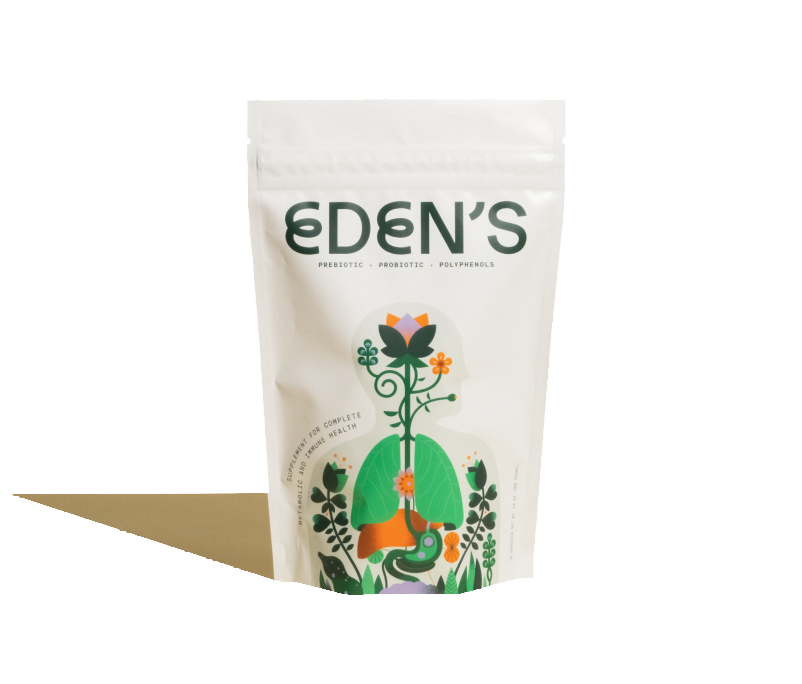Nutrition

Beneficial bacteria, which reside naturally in your gut, are integral for a healthy gut microbiome characterized by a well-functioning digestive system, proper assimilation of nutrients and certain drugs, gut integrity, motility, and efficient removal of toxins and wastes. Additionally, beneficial bacteria can be introduced by eating certain fermented foods or a supplement that contains probiotics. Research does suggest that fermented foods hold the potential to improve human health through certain demonstrated effects on the gut microbiome. But what are fermented foods, exactly?
To date, health benefits of fermented foods, particularly yogurt and kefir (in the fermented dairy category) and miso and tempeh (in the fermented soy category), are supported by research. Most other fermented foods remain unstudied in humans. Overall, adding nutrient-dense fermented foods to a plant-forward diet does appear advantageous.
Let's dive into the details.
What are fermented foods?
In a consensus statement on fermented foods, the International Scientific Association for Probiotics and Prebiotics (ISAPP) defined fermented foods as those made through desired microbial growth and enzymatic conversions of food components. Some examples include:
- Grapes plus yeast (saccharomyces) = wine
- Milk plus lactic acid bacteria= yogurt
- Apples plus acetic acid = apple cider vinegar
There is great variability in the nutritional contributions of fermented foods. The most highly touted are ones that contain beneficial bacteria. Some fermented foods also naturally contain prebiotics, the non-digestible fermentable fibers that essentially feed your gut microbes.
How are fermented foods distinct from probiotics?
The ISAPP definition was intended to clarify the distinction between fermented foods and probiotics, two terms which should not be used interchangeably. The term probiotic is only used to describe products that contain live, well-defined, characterized microorganisms with a demonstrated health benefit that extends beyond any nutritional benefit of the food matrix. Some fermented foods do contain live microorganisms, but rarely are they characterized or defined, and often the specific organism varies by batch, in which case they would be unable to be labeled as probiotics.
The history of fermented foods
Evidence suggests that the use of fermented foods dates back thousands of years and that fermentation was used as a method for food preservation. Cultures throughout the world also have historically incorporated fermented foods into their traditional diets for their purported health benefits.
In the 1850s, Louis Pasteur “discovered” fermentation when he demonstrated that bacteria feed on carbohydrates to create lactic acid, transforming foods such as milk into yogurt. In the early 1900s, Metchnikoff theorized that the longevity of the rural people of Bulgaria was related to their consumption of fermented dairy (yogurt), which he suggested counteracted gastrointestinal (GI) issues that contributed to illness and aging.
In the 1950s, the word “probiotic” was introduced and defined as “active substances that are essential for a healthy development of life,” a definition which has morphed into the current World Health Organization (WHO) official definition of “live microorganisms which, when administered in adequate amounts, confer a health benefit on the host.” Probiotics are the friendly bacteria, in fermented foods and in supplement form, that are known to generate metabolites that promote regularity, ease GI distress, generate energy, and boost the immune system.
Best fermented foods list
The popularity of probiotics and fermented foods has surged over the last several decades, a fact likely driven by a consumer desire to support GI and overall health, supported by an evolving (but still preliminary) body of scientific research.
Supermarket aisles abound with a myriad of fermented foods, such as these in the following fermented foods list:
- Yogurt
- Kimchi (fermented Korean vegetables)
- Kombucha
- Kefir
- Sauerkraut
- Miso
- Tempeh
- Apple cider vinegar
- Certain unpasteurized cheeses
- Non-heated salami, pepperoni
- Cottage cheese (not all brands, so look for those that state “fermented with live active cultures”)
- Kvass (a fermented drink made from beets)
- Wine
- Beer
- Chocolate
- Sourdough
Some of the above listed foods, such as kefir, have been well-studied for their role in GI health — but further investigation is warranted for most of the foods on the list. Certain fermented foods contain both prebiotics and probiotics, which may contribute to their potential to increase gut microbiome diversity.
What cheeses contain probiotics?
Probiotics are found in both hard and soft cheeses that have been aged but not pasteurized. While microbes in dairy foods such as yogurt have been studied for beneficial health parameters, bacteria in cheese have been researched mainly for their effect on flavor and acidification or ripening of cheese. Although Swiss, provolone, gouda, cheddar, edam, feta, parmesan, and cottage cheese are likely to provide some probiotics, most do not contain a statement about “live and active cultures” — with the exception being some brands of cottage cheese.
While cheese may or may not include probiotics, most cheeses are a good source of protein, calcium, and other key vitamins and minerals. However, because many cheeses are high in calories, saturated fat, and sodium, a controversy exists about cheese (and other dairy foods) — concerning the possible increased risk for cardiovascular disease (CVD). Although further studies are needed to clarify mechanisms and beneficial impact of probiotics, the evidence from a systematic review in 2022 indicates that consumption of fermented dairy, including fermented cheese, is associated with a reduced CVD risk.
What are the health benefits of fermented foods?
The increased scientific attention to the microbiome in recent years, coupled with the availability of a plethora of innovative fermented foods, has many asking if claims about the benefits of fermented foods are purely hype or are they evidence-based? A Google search might have you believing otherwise, but the clinical research on health outcomes attributed to fermented food is rather scarce. Most published studies are on animals or are in vitro (lab) studies, and research in humans is lacking. What is well-known is that the process of fermentation can:
-
Microbially transform food to increase antioxidant absorption, organic acids, and antimicrobial substances that help with preservation
-
Enhance bioavailability of specific nutrients and phytochemicals found in food
-
Decrease “anti-nutrients” such as tannins and phytates that can bind minerals
-
Boost intake of enzymes making food more easily digestible (re. fermented dairy products contain enzymes that help digest lactose in dairy)
As far as health benefits to humans, fermented foods have indeed been shown to be beneficial for support of the gut microbiome. In a 10-week study undertaken to determine the influence of dietary intervention on the microbiome and immune system, a fermented food diet was found to increase microbiome diversity and decrease markers of inflammation. Learn more: How does a healthy gut affect digestive health? How to lower inflammation.
However, most of the research is on individual fermented foods. Those that have been linked to health benefits include:
-
Fermented dairy (yogurt, kefir): These foods improve lactose digestion, and have a demonstrated ability to ease both diarrhea and constipation (which is attributed to their inhibiting colonization of harmful bacteria in the gut); thus, they are considered potentially beneficial for those individuals with irritable bowel syndrome (IBS). These foods also appear to be supportive of measurements of cardiometabolic health, including blood pressure, cholesterol, and blood sugar.
-
Fermented soybeans (miso, tempeh, natto): Despite a relatively high sodium level, miso is associated with reduced risk factors for CVD. Beyond its nutrient content, tempeh intake is linked to benefits for gut health, brain health, heart health, and skeletal muscle health. In a pilot study, consumption of natto was associated with suppression of elevated blood glucose following meals.
-
Kimchi and sauerkraut: Fermentation of cabbage with lactic acid bacteria breaks down the phytochemicals to activate their disease-protective ability. In human trials, intake of kimchi has been linked to effects on serum lipids, intestinal microbiota, iron status, obesity and metabolic parameters. Sauerkraut intake may benefit the improvement of symptoms in individuals with IBS.
-
Sourdough bread: Fermentation digests certain carbohydrates and proteins that can cause symptoms of IBS and non-celiac gluten sensitivity and may decrease glycemic index.
-
Kombucha: We are including kombucha here since it is widely marketed for its health benefits. However, there is limited research involving direct effects in humans, as most of the literature is in human cells (in vitro). That said, the health benefits of kombucha are attributed to bioactive compounds from fermentation including antioxidant, antimicrobial, probiotic and other positive effects.
Who should not eat fermented foods?
The microorganisms used for food fermentation are non-pathogenic and do not produce toxins. However, microbial metabolites (e.g., tyramine, histamine) formed during fermentation of some foods can lead to allergies and issues such as migraines in people who are sensitive to those constituents. Additionally, salt and alcohol are inherent components of some fermented foods, which for some individuals should be consumed in moderation. When made from safe and wholesome ingredients, and if introduced gradually, fermented foods are rarely associated with GI side effects. Some low-acid foods and cheeses can pose a safety risk if contaminated with foodborne pathogens.
Can the benefits of fermented foods be obtained from a supplement?
If you are not a fan of fermented foods (or they don’t agree with you), but you still want to safely support the health of your gut microbiome, Eden’s Synbiotic Superblend contains prebiotics, probiotics, and polyphenols that were carefully selected by Eden’s team of physicians and scientists — and the supplement has been proven to be very well-tolerated. This unique combination has been formulated to promote metabolic, cardiovascular, immune, and gut health.
Key takeaways
Although fermented foods do hold potential to improve human health through demonstrated effects on the gut microbiome, they are not a panacea as the hype from many popular press magazines and social media outlets may have consumers believing. It is well-known that beneficial bacteria are integral for a healthy gut microbiome and can be introduced by eating certain fermented foods or a supplement that contains probiotics. The research supporting health benefits of fermented foods is primarily on the intake of individual foods such as fermented dairy (yogurt, kefir) and fermented soy (miso, tempeh); however, many other fermented foods remain unstudied in humans. Although the evidence surrounding their health benefits is still evolving, adding nutrient-dense fermented foods to a plant-forward diet appears to be a sensible choice.



